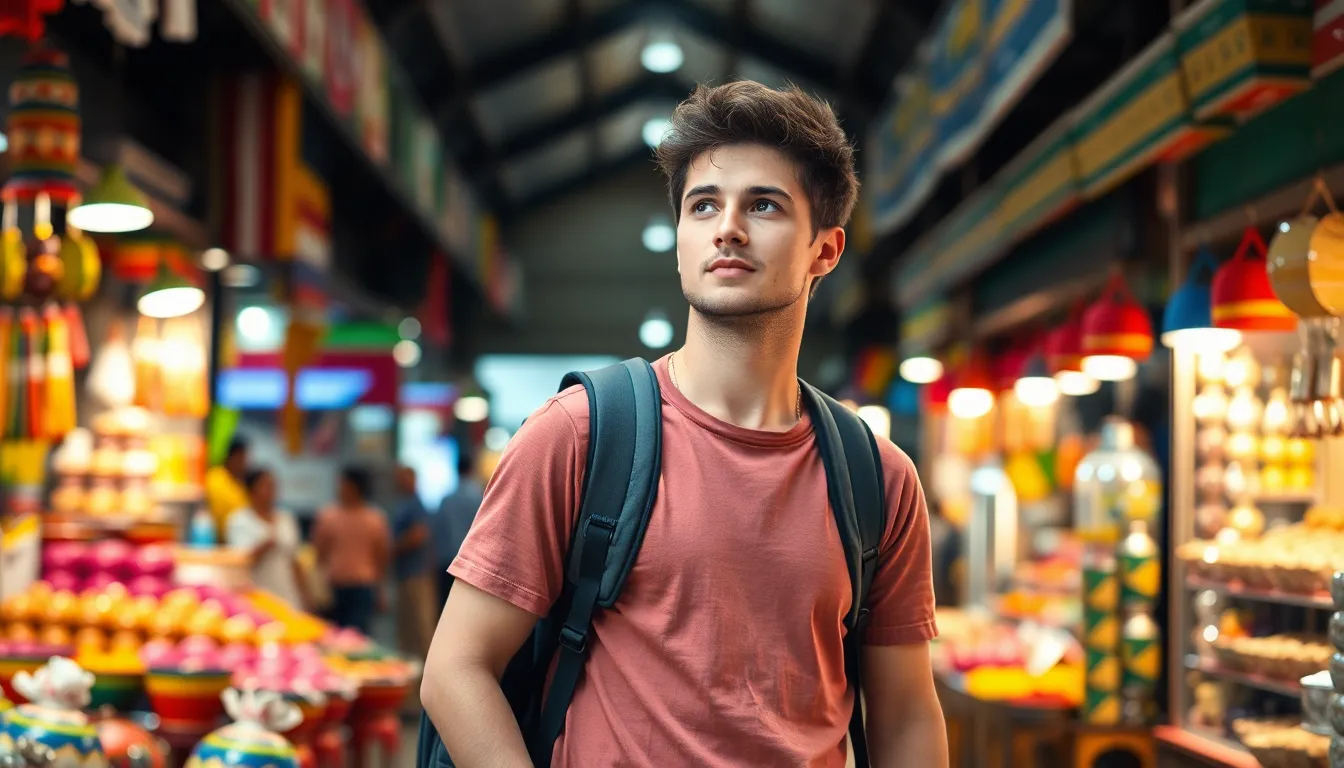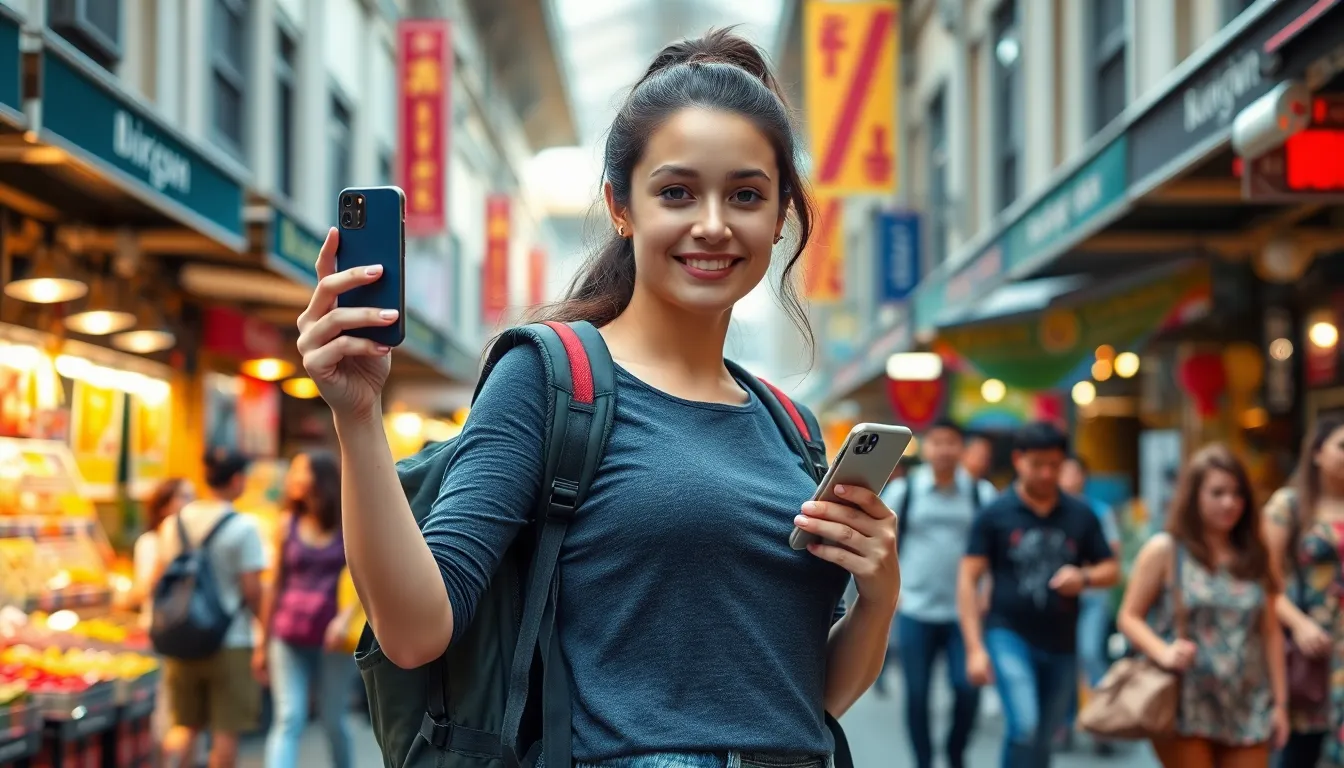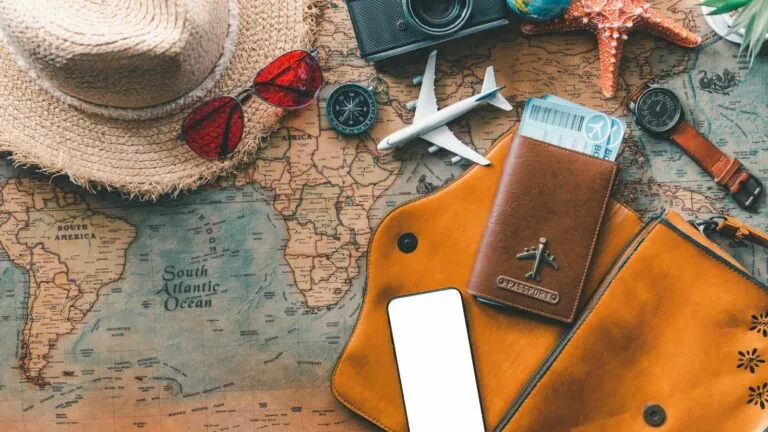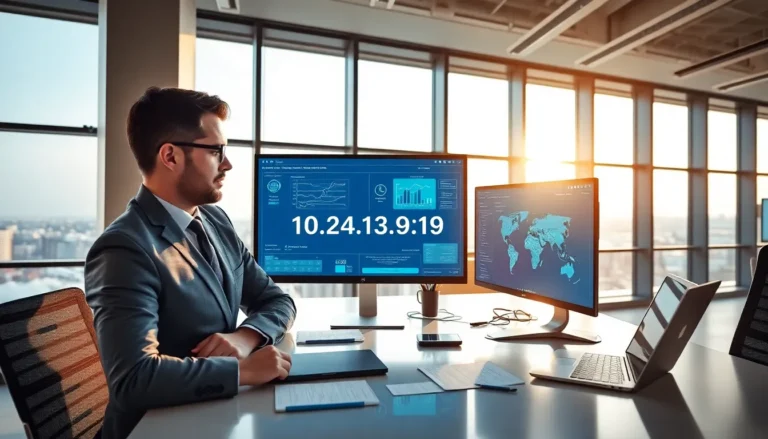Traveling can be one of life’s greatest adventures, but let’s face it—nobody wants their trip to turn into a scene from a bad action movie. With the right travel security tips, he can keep the drama to a minimum and the fun to a maximum. From dodging pickpockets to securing that precious passport, staying safe while globetrotting doesn’t have to feel like a chore.
Table of Contents
ToggleUnderstanding Travel Security
Travel security involves a set of practices aimed at protecting individuals from potential risks while on the move. Prioritizing safety enhances the travel experience, allowing individuals to enjoy their adventures without unnecessary worries. Criminal activities, such as pickpocketing and scams, can occur in crowded areas, making vigilance essential.
Awareness of the surroundings plays a crucial role in maintaining safety. Travelers should observe local behavior and identify safe areas for lodging and dining. Additionally, having a safety plan helps prepare for emergencies, whether it involves knowing the nearest embassy or understanding local emergency numbers.
Securing valuable items reduces the chances of theft. Travelers often place passports, money, and electronics in concealed pockets or anti-theft bags. Carrying photocopies of essential documents aids recovery if items are lost or stolen.
Engaging with local authorities enhances personal security. Understanding local customs and laws can prevent misunderstandings that may lead to trouble. Building rapport with security personnel in public spaces can improve safety measures.
Insurance provides additional layers of security. Policies that cover theft, cancellations, and medical emergencies reduce financial risks while traveling. Researching reliable travel insurance options contributes to a safer experience.
Connecting with other travelers can offer insights into safe practices. Online communities or travel forums often provide updated information on safe destinations and potential risks. Establishing relationships with seasoned travelers also fosters knowledge-sharing.
Maintaining communication during travels strengthens personal safety. Regularly informing friends or family about whereabouts ensures someone is aware of travel plans. Using technology, such as smartphones, can provide real-time updates and location tracking if necessary.
Essential Travel Security Tips

Travel security encompasses proactive measures taken before and during a trip to ensure personal safety. Implementing effective strategies reduces risks and promotes peace of mind.
Pre-Travel Preparations
Conducting thorough research on the destination is essential. Travelers should familiarize themselves with local laws and customs to avoid unintentional violations. Creating copies of important documents, such as passports and insurance information, protects against loss. Deciding on secure accommodations reduces risks of theft. Investing in quality luggage that features locks can deter opportunistic criminals. Establishing a communication plan with family or friends offers an additional safety net.
While Traveling
Staying alert in crowded areas increases personal safety. Keeping valuables close, either in a secure bag or under clothing, minimizes theft opportunities. Engaging with the local community aids awareness of safe areas. Utilizing mobile apps that share real-time location with trusted contacts enhances security during outings. Identifying emergency services in the area provides reassurance. Avoiding excessive reliance on technology ensures focus on surroundings, thus preventing distractions that could lead to danger.
Securing Your Belongings
Protecting belongings while traveling is crucial for maintaining peace of mind. Implementing effective strategies ensures that items remain safe and accessible.
Safe Storage Options
Utilize hotel safe boxes for securing passports and valuables during overnight stays. Consider locking luggage with sturdy locks when not in use. Carry smaller items like wallets and phones in hidden pockets or anti-theft bags. Using a crossbody bag can help keep essentials close and secure. Avoid placing valuables in overhead compartments on public transport, as theft occurs frequently in those areas. Rely on zippered compartments in bags for added safety against pickpockets.
Using Technology Wisely
Leverage mobile apps to track important belongings, such as backpacks or luggage. Keeping a digital copy of vital documents, like passports, easily accessible on a cloud service enhances security. Utilize tracking devices to monitor high-value items in case they get lost. Share location details with trusted contacts through secure applications for added safety. Ensure devices are password-protected to prevent unauthorized access. Use public Wi-Fi cautiously, especially when accessing sensitive information. Opt for a virtual private network to secure online activities and protect personal data.
Navigating Different Locations
Traveling through various locations introduces different security dynamics. Each environment, whether urban or rural, warrants distinct considerations to enhance safety.
Urban vs. Rural Security
Urban areas often present higher crime rates than rural locations. Crowded streets and busy markets increase the risk of petty theft like pickpocketing. Staying vigilant in these environments proves vital. Local security measures might be more visible in cities, such as police patrols and surveillance cameras. In contrast, rural areas may lack quick access to emergency services. Travelers might encounter more natural hazards like wildlife or unfamiliar terrain in these settings. Understanding the unique risks associated with each location empowers travelers to make informed decisions.
Local Customs and Laws
Recognizing local customs and laws is essential for maintaining security. Different countries may enforce varying regulations that travelers must respect. Familiarizing oneself with cultural practices helps avoid misunderstandings. For example, some areas prohibit photography in certain locations; acknowledging such rules prevents legal troubles. Engaging with local communities fosters trust and provides insight into safe behaviors. Using resources like travel guides or official tourism websites ensures informed choices. Overall, respecting local customs enhances the travel experience and promotes personal safety.
Travel security is essential for a rewarding journey. By implementing proactive measures and staying aware of surroundings travelers can significantly reduce risks. Securing belongings and understanding local customs not only enhances personal safety but also enriches the travel experience.
Utilizing technology wisely and engaging with local communities can provide additional layers of protection. With the right strategies in place travelers can focus on enjoying their adventures without the shadow of security concerns. Prioritizing safety allows for a more immersive and memorable journey.





